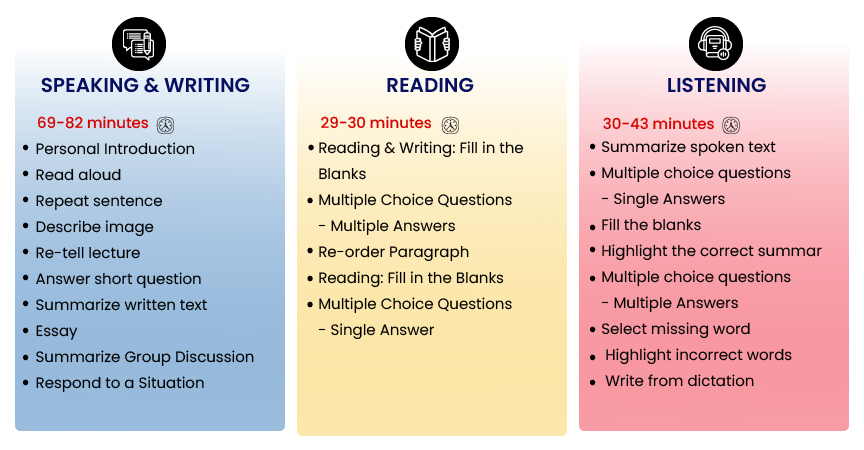List of German Days Name for Goethe Exam Preparation

Strong 8k brings an ultra-HD IPTV experience to your living room and your pocket.
At first, learning a new language can be complex. However, breaking it down into smaller parts will make it easier. The German days name is one of the first few you will see when preparing for the Goethe A1 exam. However, it is more than just memorizing words!
In addition, the German names for the days have a fascinating past and recurrent themes. It will be easy to recall from Montag to Sonntag. Moreover, the meanings, speech, and memory strategies of German day names for the Goethe exam at the A1 level are covered in this article. So let's make the week names in Germany easy and unforgettable!
Overview of the German Week
Like in English, there are seven days a week in German. However, Sonntag is at the end, and Montag is at the start. Knowing the German days name is essential in nations where German is the primary language. In addition, it is crucial for everyday discussions, booking, setting up meetings, and even understanding train and store hours.
The finest aspect? The majority of German day names have a tempo and logic to them. The suffix "-tag," which means "day," is primarily used. This suffix will help you locate them more easily. Do you prefer learning these words one at a time? If so, continue reading!
German Days of the Week
In this section of the guide, you may get a closer look at each day's name for the Goethe exam for German. It will also explain their speech, origin, and more.
1. Montag (Monday)
- Meaning: Moon Day
- Speech: /ˈmoːnˌtaːk/
- Origin: Derived from Old High German mānetag, meaning "Moon's day." It parallels the English Monday, which also comes from the Moon. This naming tradition dates back to ancient times when days were associated with celestial bodies.
- Tip: Consider your week starting
2. Dienstag (Tuesday)
- Meaning: Day of Duty
- Speech: /ˈdiːnsťtaːk/
- Origin: It shows the old Germanic god Tyr. This is the same as Tuesday in English. In modern German, however, dienst means duty or service.
- Tip: Think about Tuesdays as workdays with a lot of tasks or services.
3. Mittwoch (Wednesday)
- Meaning: Midweek
- Speech: /ˈmɪtˌvɔx/
- Origin: This name has a unique origin, unlike other names. However, this is due to the word 'tag' that will not finish it. Thus, the fact that it is similar to the middle week will make it distinct.
- Tip: Because it falls precisely in the middle, it makes it easier to divide your week.
4. Donnerstag (Thursday)
- Meaning: Thunder Day
- Speech: /ˈdɔnɐsˌtaːk/
- Origin: This word is taken from Donar. The thunder god. It is the Germanic counterpart of Thor. It is also comparable to Thursday in English.
- Tip: Imagine Thor's hammer energizing your week!
5. Freitag (Friday)
- Meaning: Freya's Day
- Speech: /ˈfʁaɪˌtaːk/
- Origin: It is well-liked by the Norse lord of love and beauty. In English, Friday is also derived from the name of the Norse goddess Freya's Day.
- Tip: End your workweek with joy, love, and maybe a party.
6. Samstag (Saturday)/ Sonnabend (alternate in some places)
- Meaning: Sunday Eve or Sabbath Day
- Speech: /ˈzɔnʔaˌbɛnt/ or /ˈzamštaːk/
- Origin: In Northern Germany, the term "Sonnabend," or "Sunday Eve," is more popular. Samstag, on the other hand, is derived from the Greek word for Sabbath.
- Tip: Consider Samstag to be the first present of the weekend. Thus, it means it is a day to relax.
7. Sonntag (Sunday)
- Meaning: Sun Day
- Speech: /ˈzɔnˌtaːk/
- Origin: Sonntag, meaning "rest" and "brightness," is the origin. But, like English, it comes from the Sun (Sonne).
- Tip: Think about a calm day or the end of the week when the sun is shining.
Thus, some German day names are listed above. You can read about the origins, meanings, and usage of these words, as well as some learning tips. Also, there are a few ways to remember them. Are you curious to know it? Let's check it in the next section!
Handy Memory Tricks
Here are a few of the best ways to quickly remember the German days name:
Also, keep in mind that the majority of days conclude with -tag = day.
Mo, Di, Mi, Do, Fr, Sa, So. Thus, acronyms are used more, mainly in timetables.
Make a story or visual link:
- Moon (Montag)
- Duty (Dienstag)
- Middle (Mittwoch)
- Thunder (Donnerstag)
- Freya/Love (Freitag)
- Sabbath (Samstag)
- Sun (Sonntag)
Moreover, the aforementioned advice is beneficial to you if you are studying at the Goethe A1 level during the week.
Grammar Tips: Using Articles with Days
For Goethe exam A1 learners, learning to use articles correctly in weekday names is crucial. However, the correct article to use in German is "der," which is masculine:
- der Montag
- der Dienstag
- der Mittwoch
.... and so on
Additionally, when talking about everyday events, use am, which is short for "an dem."
Am Montag gehe ich zur Schule: This shows that I will be attending classes on Monday.
In short, you must adhere to specific grammar rules when using the German names for the weekdays.
Conclusion
To sum up, it is crucial both for language and culture to learn the German days name from Montag to Sonntag. But simply knowing these words is not enough. Furthermore, it is easy to remember them once you recognize their pattern. Students in the Goethe A1 level will benefit from knowing these terms. Thus, it helps them read timetables or participate in real-world discussions.
Moreover, with expert tutors at gradding.com, you may continue the Goethe exam preparation efficiently. You can spend some time using them in context and repeating them. To put it briefly, it will help you feel as comfortable as you do during the week!
Note: IndiBlogHub features both user-submitted and editorial content. We do not verify third-party contributions. Read our Disclaimer and Privacy Policyfor details.







